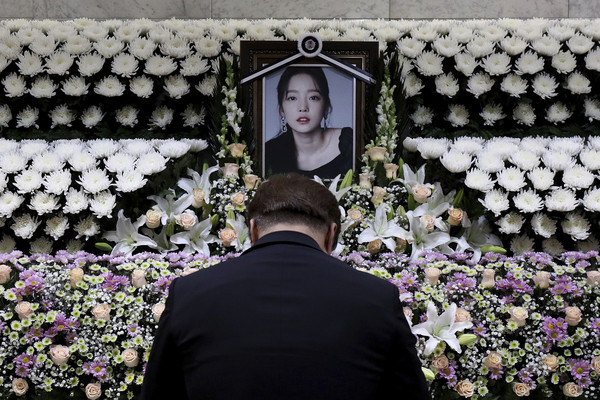"Just do as much as you can. Don’t worry or stress too much,” is what my mom told me as she hugged me last at the airport four years ago. While extremely excited about seeing me fly to Korea to attend KAIST, there is no doubt that she was worried. In the first four months of 2011, four KAIST students had taken their own lives. Hearing about those students and rumors about how stressful classes were in my to-be university, my parents were anxious to see me go. After four years and in my last semester, I can now safely say: “Dear mom and dad, I made it — I am still here.”
Although I’m still alive, life in KAIST or Korea in general is not without its victims. This year, in the space of a month, the country was rocked by the deaths of two of its most famous idols: Sulli and Goo Hara. Originally a member of the girl group f(x), Sulli took her own life in October. The suicide of Goo Hara, a former member of KARA and close friend of Sulli, soon followed a month later. There are so many aspects contributing to the two deaths to be infuriated about: hate comments, the objectification of women, sexual harassment, illicit filming — and that’s just the surface. But there’s one more important factor: the unforgiving work culture.

Competitiveness is the lifeblood of our country. In any type of office, you are constantly aware of how hard others are working. If your superior hasn’t left work, you are not leaving work. If your co-worker is performing well, you will know as your boss will likely remind you about it. This mounting pressure leads you to be constantly vigilant of those in your office and to naturally want others to fail — not out of spite, but because that would mean you could succeed.
The hostility and the pressure would push anyone to the edge. And, in Korea, going beyond that edge is considered something to respect. Sacrificing your health for your work is a widespread and “admirable” work ethic in our culture. Due to this, the Korean work environment strong-arms people to their deaths, and in the entertainment business, it’s juiced up on steroids.
"The Korean work environment strong-arms people to their deaths, and, in the entertainment business, it's juiced up on steroids."
The entertainment business is a line of work in which your successes and failures are public affairs. Not only does this mean that you have to match the expectations of millions, but also that thousands are waiting for you to fail — whether it be out of jealousy or simple hatred. Add to that how many more actors, idols, or entertainers that you are competing against and how fickle popularity can be, and any time you take a break means a step closer to falling into obscurity and being out of work.
This takes its toll. SHINee’s former member Jonghyun wrote about his struggles of being in the spotlight in his suicide note two years back. In May of this year, Goo Hara attempted suicide. Only six months after, she was touring in Japan; two days after she returned, she took her own life. The lifestyle demanded from these artists is simply senseless. It is no wonder that so many of them struggle with the pressure and depression that it brings.
Despite the damage this lifestyle can have on one’s mental health, getting help is not usually an option. If Korea treated physical health with the same dismissal as mental health, we would be telling people with broken arms to just put a band-aid over it. Getting help for mental health is seen as a weakness and many have fears about how this would be perceived by those around them. This is even more the case for celebrities, whose public image is vital to their success. And so the stigma against seeking out appropriate help leads to our astronomically high rates of alcoholism and suicide, as the only escape methods people can see. The crushing pressure and the lack of support means that working here is like getting thrown into the lion’s den empty-handed.
The Korean view on mental health is definitely changing for the better. More and more artists have started to talk about these issues and their art is starting to reflect their struggles — listen to Paul Kim’s “Dear me” and VINXEN’s “Yoo Jae-suk” for examples. But it’s clear that we still have a long road ahead and that the deaths we saw this year are far from the last. In my case, for now, I have to continue living here for five more years, at least. So, dear mom and dad, let’s see if I am still here in five years.

